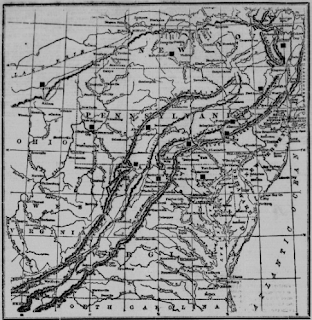During class, we were asked to browse through the Library of Congress's newspaper archive to read primary sources from 1870-1890. First I searched, "The Great Railroad Strike." In
The New York herald, I read about how intense the strike was by just reading the short blurbs down the right hand side of the paper. I was shocked by the severity of the situation compared to the readings in class, "A day and night of blood and horror at Pittsburg." and "The Great Railroad Strike becomes a savage war." They even included the casualties as if the headlines did not convey the strike clearly enough, "ninety-one lives lost and 149 persons wounded in various struggles." As I continue to read through the newspaper, moving away from the headlines into the content, I see immediately the editors comparing The Great Railroad Strike to the Civil War, "Not since the dark and threatening hours of 1861, when the civil war was in its incipiency, has the nation been called upon to confront such a grave condition of affairs as exists at present time in five states of the Union." The vastness of this particular strike did not register with me until reading that single sentence that opens a lengthy report on The Great Railroad Strike. I found out that The Great Railroad Strike began in Martinsburg and has been "spread with an [inconceivable] rapidity." The paper talks about the level of violence in the area and due to the inability of the state militia to suppress this violence, the President was forced to call in federal troops, solidifying what we learned in class about the brutality of this first major national labor conflict. As a result of the federal troops being called in to suppress this act, many strikers set fire to railroad cars and round houses, "Maddened by their repulse they then set fire to cars loaded with oil and other combustible materials and pushed these down the track to the round house, thus compelling the troops to retreat." Commander General Brown told the Herald that he was at a loss with his own men because they were sympathetic for the strikers. He describes the strike as, "a reign of terror," fully illustrating the impact of this strike on many underpaid men working at this time. Toward the end of this section, the editors dedicate a portion of their space to those who have died as a result of The Great Railroad Strike, those who were strikers, policemen, troops, and civilians, along with a final death count of residents in Baltimore and Pittsburg the weekend of July 23, 1877.


Comments
Post a Comment